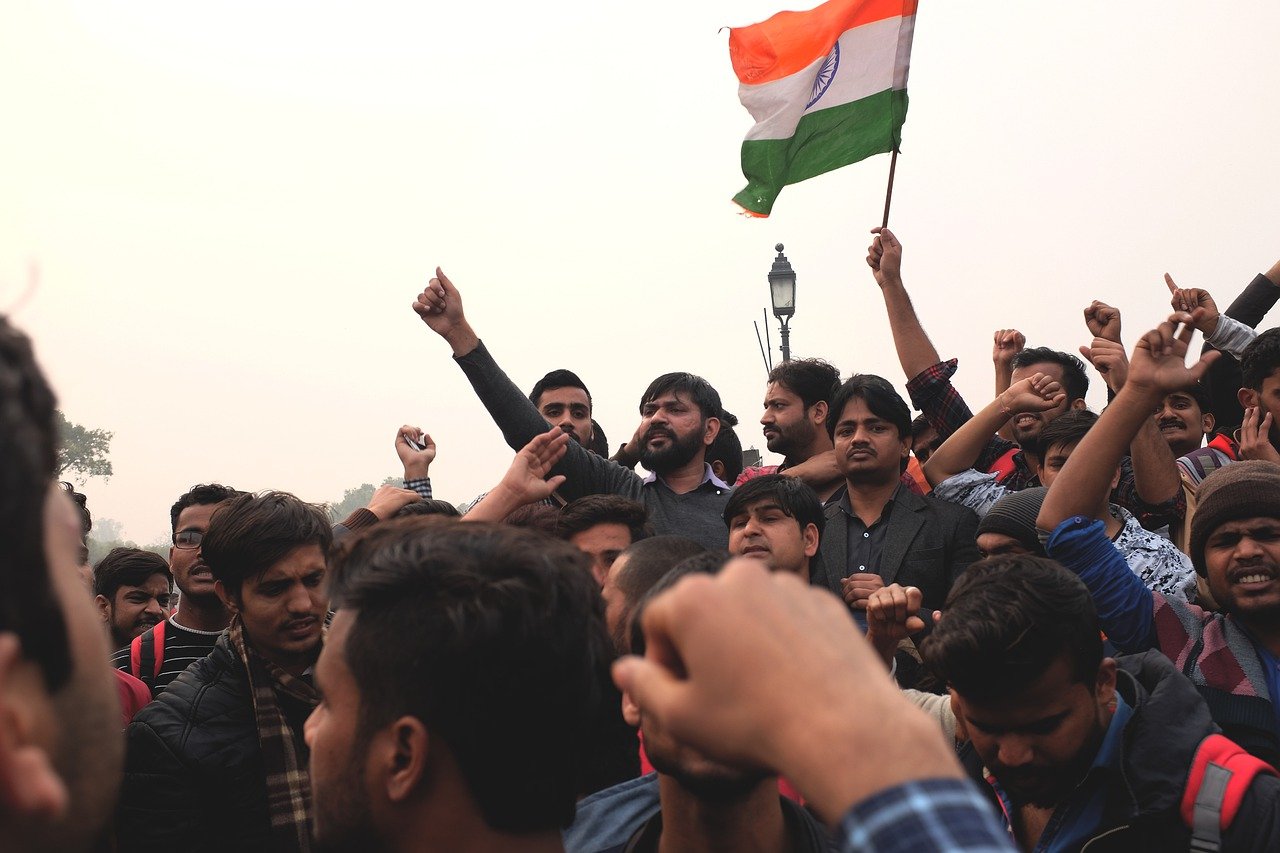Indians have often tried to convince themselves that India remains a largely tolerant and secular country. But several surveys and polls have proved that much of India remains conservative, undemocratic and intolerant. Liberal parties must build grassroots presence to change this reality.
The results of the 2022 Assembly elections have once again depicted the firm hold the Bharatiya Janata Party (BJP) has over the Indian voter and their indomitable rise in the political arena. With four out of five states voting in their favour, it has emboldened the Hindutva project, as witnessed by a horrifying rise in communal clashes and hate speech over the past few weeks.
Analysts have listed many factors responsible for their electoral success, but among those reasons, the ideological supremacy of the ruling party stands tall, defending it from any blunders committed.
Realising the Demand
Independent India – the epitome of democracy and self-rule, guided by several luminaries – gave itself a Constitution that was liberal, secular and socialist, preaching equality and justice for all of its citizens. But 75 years down the road, Indians have not imbibed most of these ideals.
In her book, Whole Numbers and Half Truths, data journalist Rukmini S. depicts how conservative, undemocratic and intolerant the social fabric of India is. Indian respondents ranked below the global average, alongside Pakistan and Russia, for the importance they accorded to democracy. Indians expressed greater support for a strong leader and military rule than most other countries. They also don’t hold civil liberties to be an integral part of democracy and ranked below Pakistan for the same. She highlights the same sorry state along religious and caste lines, breaking down the facade that Indians are largely tolerant and liberal.
Thus, the liberal values that the nation’s forefathers preached did not seep down to the roots. The top-down approach of codifying these values in the Constitution has not changed the ground reality. Our freedom fighters may have succeeded in achieving political change but not social change. This has been exploited in India time and again by opportunistic political leaders and their parties.
The Rashtriya Swayamsevak Sangh (RSS), the ideological mentor to the ruling BJP, owes its present success to this weakness. With a firm presence across India – from schools to ‘shakas’, cutting across age groups, occupations, gender and caste identities with its various branches – the RSS’ Hindutva ideology has penetrated deep into the Hindu psyche, with the BJP now reaping the harvest. The RSS-BJP have not completely manufactured the illiberal ideas that Indians hold today, but they have weaponised them for political gain.
Soft Hindutva
In recent times, young and old political parties like the Aam Aadmi Party (AAP) and Indian National Congress (INC) have been accused of sponsoring ‘soft Hindutva’. AAP national convener Arvind Kejriwal’s sudden public devotion to Hanuman and the ineptitude and perhaps hesitancy of the Congress party in Karnataka, in strongly opposing communal politics in the state, are a few recent examples.
This depicts a very disturbing trend, where political figures would subscribe or remain indifferent to the divisive politics of the ruling party in order to garner votes. They may or may not consciously hold the same beliefs but understand that votes would come down to such appeasement.
One could argue that this is the only way liberal political parties can engineer votes for themselves. Winning an electoral battle by such means may help them bring about social change. But history has shown that such top-down approaches achieve little. Shouldn’t they rather work on building their own base amongst the masses?
Uprooting Hindutva
In an article for Outlook, Rajya Sabha MP Manoj Kumar Jha points out the importance of party cadres to mobilise voters and supporters for political parties in India. He argues that the INC and others should work on the same instead of blindly pursuing “the datafication and professionalisation of election management” – important as parties chase election strategist Prashant Kishor as an answer to all their woes.
Perhaps what liberal political parties need is not to each build an ideology and cadre with similar messaging working separately or against each other, but a collective cadre building a strong liberal ideology in response to the Hindutva brigade. The liberal ideology must reign supreme over individual leaders and their parties.
These liberal political parties have a lot that they can learn from their opponent. Instead of jumping from one election to another, they must start working together to build an ideology at the grassroots. This painstaking and time-consuming process would require them to look beyond 2024. Active and democratic collaboration of such like-minded parties could uproot the conservative poison that has been nurtured by their opponents and substitute it with a forward-looking, liberal and plural ideology – one that can keep the Indian Union together.
As Mahatma Gandhi always reminded his followers, India resides in its villages. ‘Shakas’ must be set up in every Indian village to preach liberal values. The need of the hour is a social revolution, involving people from all walks of life, to carry the movement down to every Indian. The RSS approach of having multiple sub-organisations to possess a wide reach could be mimicked.
While social media has played an important role in recent elections such as in West Bengal, Indian politics still does immensely rely on an on-ground presence to motivate voters – and more importantly, not just on the eve of elections. In her book, Rukmini writes that a 2016 Youth survey found that 50 percent of respondents had never used social media, while 64 percent of youth had no immediate access to the internet. Thus, a focused and energetic cadre must work on the ground to mobilise mass support and sensitise Indians to the flaws of the Hindutva ideology.
Indians have often tried to convince themselves that India remains a largely tolerant and secular country, with minorities living as or more comfortably than the majority community. They have dismissed bigotry and hatred as fringe elements and thus have remained ignorant of the problems that plague India. If India is to redefine itself and move away from the communal carnage that surely lies ahead, a recognition of the scale of problems is just the first step. Immediate electoral victories must take a back seat, and liberal political parties must carve out a new legacy for themselves.
Siddharth Mohan is a student at St. Joseph's College Autonomous, Bangalore. He is currently pursuing a Bachelor's degree in Economics, Political Science and Sociology.


